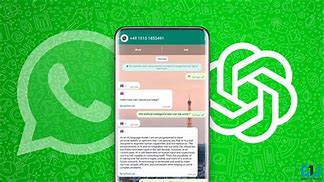Today, OpenAI announced a significant expansion of access to its popular AI chatbot, ChatGPT, introducing new features that allow users to interact with the AI via phone calls and WhatsApp.
This development is part of OpenAI’s “12 Days of OpenAI” initiative, which aims to enhance user engagement and accessibility to artificial intelligence technologies.
Read also: Try Grok-2: Elon Musk’s latest AI model, free for X users
A human-centric approach to AI
In an era where technology often feels distant and impersonal, OpenAI’s latest offering aims to bridge that gap by making AI interactions more accessible to everyday users. The ability to call ChatGPT at 1-800-CHATGPT (1-800-242-8478) or send messages via WhatsApp brings the power of AI into familiar communication channels.
This initiative is particularly beneficial for those who may not be comfortable using apps or web platforms. As Kevin Weil, OpenAI’s Chief Product Officer, stated, “This is a stepping stone for AI newcomers, designed to provide a user-friendly experience”.
The service allows users in the U.S. and Canada to engage in voice conversations with ChatGPT for up to 15 minutes each month without requiring an account or subscription.
For those outside North America, messaging capabilities through WhatsApp are available globally, enabling users to send text queries directly to the AI. This move is seen as a way to democratise access to AI technology, making it available even on basic flip phones and landlines.
Read also: OpenAI’s text-to-video tool, Sora, is now publicly available
Features and limitations
The new phone service is designed with simplicity in mind. Users can initiate a call or send a message without the need for advanced technical knowledge. However, some limitations exist: while phone calls allow for natural language conversations, WhatsApp messaging currently supports text-based interactions only. Advanced features such as image generation or personalised responses will still require users to access ChatGPT through traditional web or app interfaces.
OpenAI emphasises that this initiative is experimental and may evolve based on user feedback and system capacity. The company is also exploring integrating more advanced functionalities into these new communication methods.
As OpenAI continues to innovate under the leadership of its founder, Sam Altman, the introduction of ChatGPT via phone and WhatsApp marks a significant step toward making AI more approachable and integrated into daily life. The goal is not just providing information but creating a conversational partner who can assist with various queries—learning a new language or simply seeking advice.
















